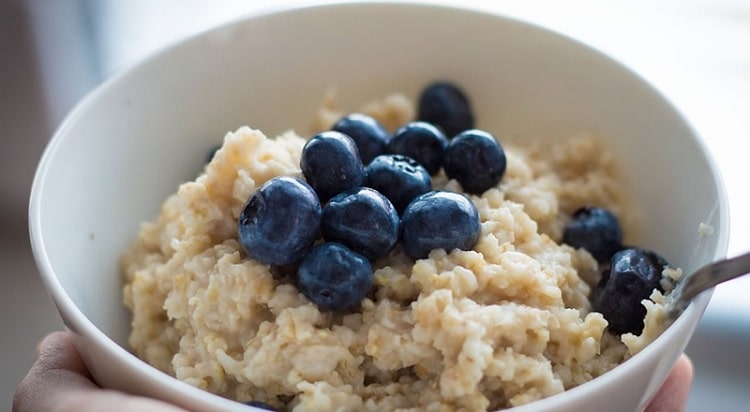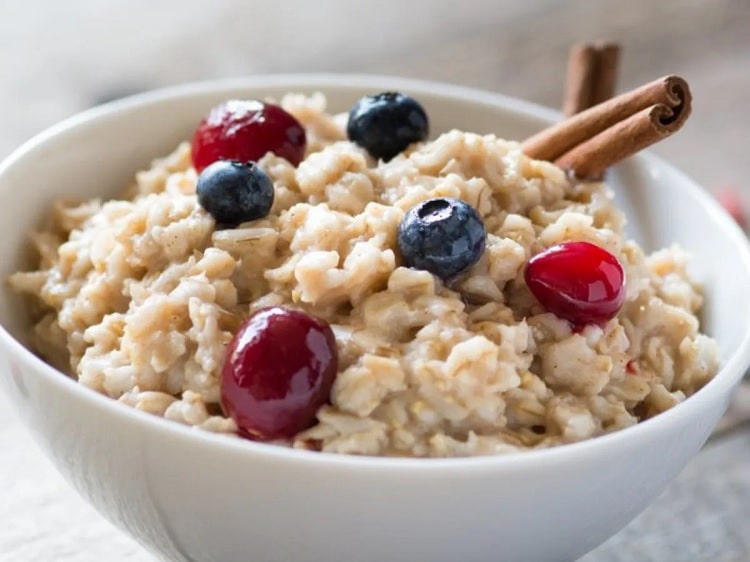Is Oatmeal Good for Weight Loss? Find Out the Benefits
Having oatmeal for breakfast is a healthy way to begin your day. Due to its fiber and protein content, oatmeal is preferred by many fitness enthusiasts. While people in many countries have oatmeal as their breakfast food, recent trends suggest the consumption of oatmeal for weight loss.
Despite oatmeal being a popular meal in many countries, its potential effects on weight loss have only been highlighted only in recent times. There are many nutrients in oatmeal that can support weight loss.
When you decide to eat oatmeal for weight loss, it will help if you consider the factors that can affect the nutritional benefits of oatmeal. The type of oatmeal you consume also has a significant impact on your weight.
Oatmeal is easy to prepare and a healthy option to add to your diet. We shall delve into the nutritional information of oatmeal, its effects on weight loss, its health benefits, and ways of consuming oatmeal for weight loss in this article.

Oatmeal Nutritional Facts
Oatmeal is a porridge prepared from oats by boiling them in water or milk. Oats are good for your health due to their packed nutrients. Preparing oatmeal with water can support your weight loss. This nutty-flavored meal contains many nutrients like fiber, vitamins, and protein.
Oatmeal’s flavor and nutrients are enhanced through the toppings you add. Hence, it is best to include fruits in your oatmeal to support weight loss. As per the USDA, half a cup of oatmeal contains the following nutritional profile:
- Calories – 148
- 5.48 g of protein
- 3.76 g of fiber
- 27.3 g of carbohydrates
- 2.5 g of fat
- 1.2 mg of sodium
Oatmeal also contains essential vitamins and minerals like vitamin B complex, manganese, phosphorus, magnesium, copper, iron, zinc, calcium, potassium, and folate. These nutrients promote your overall health in addition to weight loss.
Is Oatmeal Good for Losing Weight?
There are various types of oatmeal. It is best to consume rolled or steel-cut oats and avoid processed oatmeal to lose weight effectively. The fiber content in oatmeal helps to have a feeling of satiety and control calorie consumption.
Almost every weight-loss diet emphasizes consuming fewer calories than you burn to lose weight. Oatmeal contains soluble fiber that forms a gel-like substance while absorbing water and filling up your stomach. Hence, consuming oatmeal can aid in regulating hunger and preventing excess calorie intake.
In addition, oatmeal has a low glycemic index, which quantifies how quickly a food raises blood sugar levels after consumption. Spikes in blood sugar levels increase fat storage and cause weight gain. Therefore, you should maintain control of blood sugar levels to support weight loss.
Consuming oatmeal can stabilize your blood sugar levels and facilitate weight loss. Through the consumption of oatmeal, your insulin levels can also be lowered. Low insulin levels have been associated with decreased fat storage and weight reduction.
Oatmeal is a rich source of protein, a nutrient that helps build lean muscle. When you have muscle, you can burn more calories through an exercise routine.
Moreover, protein increases the feeling of fullness and regulates food consumption. Oatmeal also helps with energy, which you can utilize to improve your exercise performance and lose weight steadily.
How to Consume Oatmeal for Weight Loss?
Even though oatmeal can potentially aid in weight loss, the way you consume it has a more significant impact on your weight. Hence, it would help if you adopted the below-mentioned steps for consuming oatmeal for effective weight loss.
Practice portion control
It is recommended to consume half a cup of dry oats for healthy weight loss. Based on your height, weight, activity level, and age, you can take one to two cups of oatmeal per day.
You should practice portion control to maintain your weight loss. Since it contains carbohydrates, exceeding the daily recommended limits of oatmeal consumption can affect your weight loss goals.
Be mindful of how you eat
When you eat oatmeal to lose weight, you should avoid adding too much sugar to it. We have seen the effects of increased blood sugar levels on your weight. Therefore, you can restrict the use of sugar in oatmeal for weight loss. If you find it challenging to eat oatmeal because of its bland flavor, you can add fruits like blueberries to it and consume the mix. Fruits can be a healthy addition to your oatmeal.
In addition, it is best to avoid flavored or instant oatmeal. Instant oatmeal with a high glycemic index might raise your blood glucose levels and interfere with weight loss. This is because of its processing, which lowers its fiber content.
Flavored oatmeal can also contain high levels of processed sugar, which can hinder your weight loss. Consuming minimally processed oatmeal can aid in losing weight effectively, along with promoting overall well-being.
Remain consistent
You need to maintain your consistency to see better results in any diet. In order to remain consistent, you can start by consuming oatmeal two to four times a week to let your body adapt to it. You can have a glass of water along with consuming it to reduce symptoms of bloating or stomach pain. Following a nutritious diet plan with customized meal options in addition to your oatmeal intake will help with your consistency.
Health Benefits of Oatmeal
Oatmeal provides you with many health benefits. The vitamins and minerals in oatmeal help sustain your energy and lose weight steadily. Consuming oatmeal on a regular basis helps you reap the following benefits:
Enhances Digestive Health
The fiber content in oatmeal helps increase feelings of fullness and maintain healthy digestion. Daily intake of fiber aids in promoting regular bowel movements. Oatmeal is a rich source of fiber that promotes the growth of gut-friendly bacteria. A balance in gut microbiota is essential for managing your weight. When you consume oatmeal on a daily basis, your gut health improves, preserving your overall health.
Stabilize Blood Sugar Levels
Oatmeal is loaded with fiber, which delays the absorption of sugar into the bloodstream. Fiber intake is linked with reduced blood sugar levels, which can be beneficial for diabetic people. Having a stable blood glucose level helps maintain your energy throughout the day.
Lower Cholesterol Levels
The soluble fiber in oatmeal lowers the level of LDL cholesterol in the body. When you consume oatmeal regularly, your blood cholesterol levels lower, thereby reducing the risk of stroke and heart disease.
Improves Skin
Oatmeal helps with collagen production and improves your skin. The nutrients in oatmeal moisturize and cleanse your skin. Oatmeal contains amino acids that help to lighten your skin. Consuming oatmeal can help protect against skin-related conditions.
Boost Immune System
Oatmeal contains soluble fiber, beta-glucan, which activates immune cells and helps to protect your body against infections. The fiber in oatmeal can promote your immune health by feeding gut-friendly bacteria in the body.
Improve sleep
Consuming oatmeal on a daily basis can improve your sleep. This is because of the presence of melatonin in oatmeal, which improves your sleep cycle.
Downsides
Consuming oatmeal in moderation supports your weight loss in addition to providing many health benefits. When you exceed the recommended limits of oatmeal consumption, you can gain some weight due to its carb content.
But oatmeal is not fattening when taken in moderate portions every day. Some people may experience gas and bloating if they consume too much oatmeal. Hence, it is best to consume oatmeal in moderate quantities on a daily basis to lose weight effectively without any side effects.
Summary
Oatmeal is a nutritious porridge that can help with your weight loss. Studies showed that dietary fiber in oats increased feelings of satiety and controlled appetite, preventing overeating. Consuming whole grains like oatmeal can help to regulate your calorie intake and maintain weight loss.
The nutrients in oatmeal provide you with energy throughout the day, which can increase your workout performance. Consuming oatmeal in the right portions can help sustain your weight loss over time.
Faqs
The high-fiber content in oatmeal makes it a healthy option for losing weight. Oatmeal aids in regulating blood sugar levels and prevents fat accumulation. Moreover, oatmeal is low in calories, thereby supporting weight loss. Hence, you can lose belly fat by consuming oatmeal in moderate quantities on a regular basis.
The quantity of oatmeal you should eat each day to lose weight will vary depending on your age, weight, height, and degree of activity. The recommended daily limit of oats for weight reduction is half a cup (50 g).
The optimal time to eat oatmeal for weight loss is in the morning. When you consume oatmeal in the morning, you have more control over what you eat throughout the day because of its appetite-suppressing effects. Oatmeal also provides you with increased energy levels, which you can utilize for your workouts. You can also consume oatmeal at night to have a better sleep, which supports weight loss.







